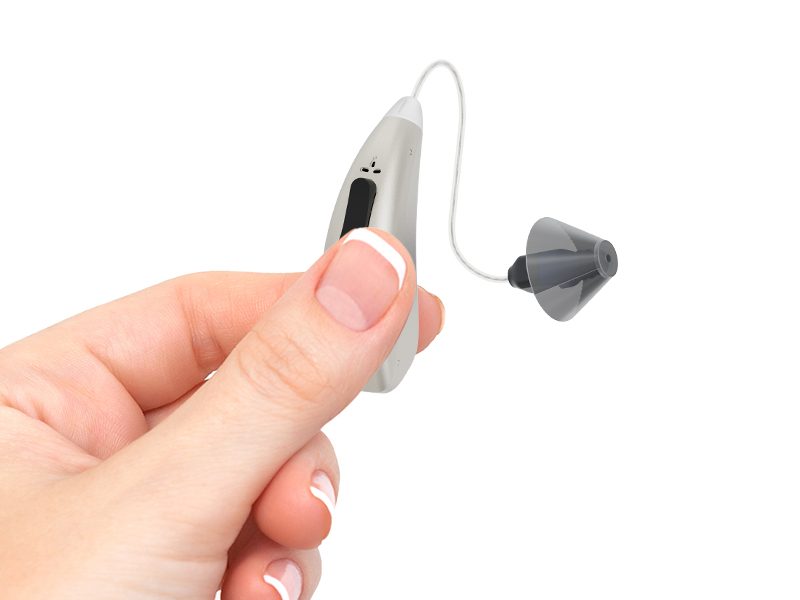
A reliable hearing aid supplier integrates advanced technologies into their products to deliver an optimal hearing experience. The technical core of hearing aids is usually multi-faceted, and when choosing a hearing aid, one should consider the key technologies and features that these manufacturers implement. Below are some of the essential technologies and factors you need to know about when selecting a hearing aid.

Technical Core:
Digital Signal Processing: This technology is vital in giving clear audio and personalized listening. Good-quality DSP can allow minute tuning according to the degree of loss a user has, which will ensure that the device meets the specific needs of the user. A good hearing aid supplier will invest much in this technology to enhance sound clarity.
Directional Microphone: It enhances the focus on specific sound sources and reduces the effect of ambient noise. The best hearing aid manufacturers have designed their directional microphones to offer superior noise cancellation especially when there is noise around.
Bluetooth Technology: This enables hearing aids to connect with other devices seamlessly, extending their functionality to include phone calls, and music playing, among others. Top hearing aid suppliers have integrated Bluetooth technology into their devices to further enhance convenience and connectivity in life.
Adaptive Environment Adjustment: With different surroundings, hearing aids automatically adjust to the level of sound and frequency that is around one for the perfect hearing effect. A well-established hearing aid manufacturer will make sure that its products automatically adjust in any given surroundings for perfect listening.
Smart Learning Algorithms and Artificial Intelligence: These allow hearing instruments to learn and set automatically according to one’s needs and change over time. One of the biggest recent trends in hearing instruments is the inclusion of AI-a trend to be welcomed by all leading hearing aid manufacturers for a far more personalized experience.
Remote adjustment and monitoring enable professionals to monitor and adjust the hearing aids while away from their premises. Most of the well-recognized and trusted manufacturers in the field offer this feature for extended care and support by keeping the hearing aid optimized for use.
Physiological Signal Monitoring: The integration of physiological signal monitoring, such as heart rate monitoring, provides users with a more complete health care service. Some innovative manufacturers are just starting to incorporate these functions into their hearing aids in order to offer multi-dimensional healthcare alongside the improvement of hearing.
How to Choose a Hearing Aid Supplier
Following are some key factors that can help in selecting a hearing aid supplier, as it is very important to get a quality product best suited for your needs:
Reputation and Experience: A well-reputed and experienced hearing aid manufacturer will develop better trust in the working and durability of the product. An experienced manufacturer knows how things work in hearing aid technology and its evolution over time.
Product Range: Check with the manufacturer of their line of products and ensure that a number of different hearing aid models will meet your particular needs. A flexible hearing aid supplier would be one with choices matching the many different degrees of impairment and even lifestyles.
Service and Support: After-sales service and support are paramount in purchasing a hearing aid. Check if the hearing aid manufacturer offers a warranty, repair services, and customer support that will keep your device in perfect working order for a long time.
User experiences and reviews: This would give an overview of other users’ experiences with the manufacturer’s products before buying. This is important in order for you to get a better insight into how well hearing aid manufacturers’ devices perform in real-life situations.
Technical support and software updates: One needs to know whether the company releases timely technical support and/or software updates to the hearing aid so that it stays updated and works properly.
Cost and Insurance Coverage: Consider the overall cost of the hearing aid, including whether it fits within your budget. Some hearing aid suppliers also work with insurance providers, so be sure to verify if insurance can cover the purchase and maintenance of the hearing aid.
Trial and Adjustment Period: Most of the reputed hearing aid suppliers offer a trial period and adjustment facilities to enable you to ensure that the hearing aid fits your requirements. Ensure the manufacturer provides a decent time for you to adjust to the device and check its comfort and effectiveness.
ELHearing: A Leading Hearing Aid Supplier
ELHearing occupies an area of 3000 square meters and has own integrated R&D, manufacturing, and quality control team and facilities. Established in 2014, the entire ELHearing family has been dedicated to providing affordable hearing aids to the hearing impaired around the world.
We pursue high standards of hearing aids, using imported chips, raw materials, independent research, and development of core algorithms, strict control of each production process, and layer-by-layer detection through the FDA, FCC, and ROHS certificates to ensure that users use high-quality hearing aids.
Our products are successfully entered more than 50 countries. Such as the USA, India, Japan, etc. ELHearing is willing to establish win-win cooperation with you.
